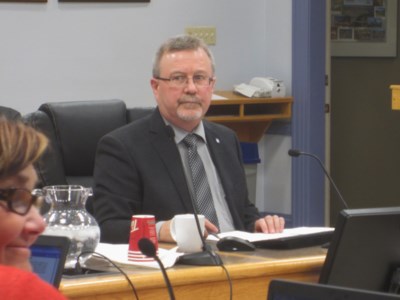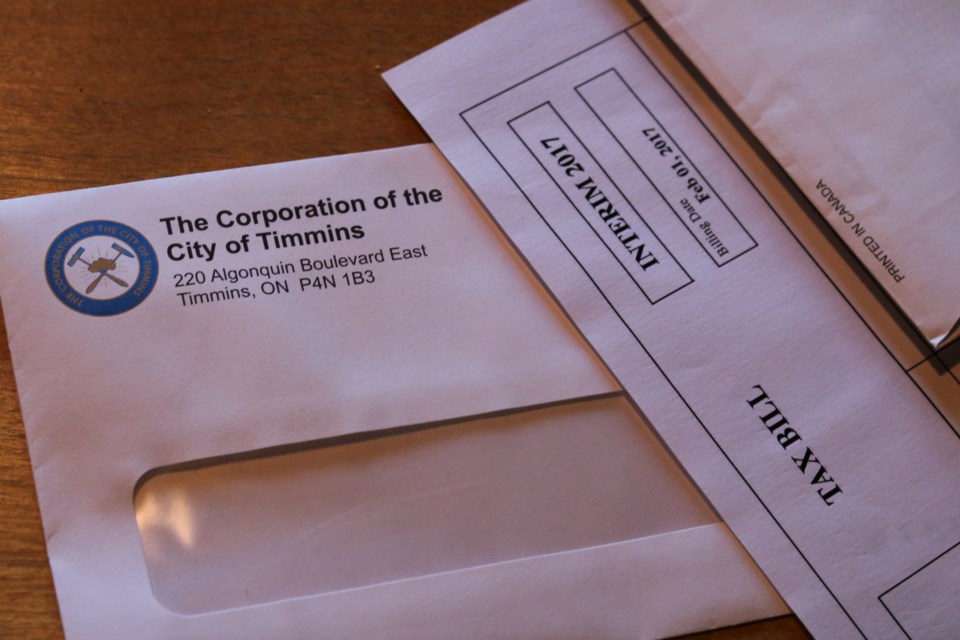It is now August and property owners in Timmins are still awaiting their second tax bill of the year. The reasoning behind the delay has much to do with handling low assessments from the Municipal Property Assessment Corporation (MPAC).
Standard protocol has the first interim bill, for 50 per cent, due at the end of February. The second portion is sent out in May, with installments due May 31, and Aug. 31. Some years the installments come at slightly later dates, but 2017 is unlike anything seen before.
"This year is a particularly horrific year. We had a really surprising re-assessment come through. We had a huge shift to the residential tax class," said City of Timmins Director of Finance Jim Howie
The city had been waiting for months for MPAC assessments of major tax contributing industrial properties such as mines, and when they did come in, they were so low that the city had to open negotiations to avoid a brutal blow to the wallet of local residents.
"We have some flexibility. We have some tools we can use what's called 'tax ratios', where we can play with the tax ratios, and increase them, and shift the burden back to the classes that the shift went away from. If it was a totally re-assessment related shift, that would be an appropriate plan of action. But some of these were from demolitions, and some of these were corrections from previous years. Last year we had huge tax write-offs. We had almost four million dollars that we booked for tax write-offs, and a lot of them were related to when Glencore knocked down the smelter. We reduced their taxes by about $4 million, but they also tore down several other buildings which we thought were all included in that. Well they weren't," said Howie.
Much of the infrastructure that the city used to count on is nearing end of life, and thus has experienced major reductions in their assessments, unlike the residential sector which has remained steady, or even increased.
"Because it's costing them more to operate than they're bringing in. So the assessment reduced so dramatically that it caught us off guard. We knew in 2021 or 2022 they would be going down, but we didn't count on it happening so quickly and hit us on the 2017 to 2020 taxation years, because of the re-assessment in 2016."
Howie said another major factor in the delay for getting the tax bills out is simple. Lawyers.
"We've been working the large players to try and soften the blow. So part of that are what's called tax agreements. Rather than them going to ARB (Assessment Review Board of Ontario) or us taking them to the ARB, which would take four of five years and cost us a lot of money, we're trying to settle this between ourselves out of court to save everybody some money. So that's where we're at. We're really close. They came back with some offers in these agreements to help reduce the burden on the residential class. Because it has such a large impact, that's why we're delayed. Going through lawyers takes longer than we anticipated."
"We thought we were going to get them in May, and it got delayed until the end of June. We got them in mid-July, now they're with our lawyers, and he doesn't like some of the language. So we're hoping to have one of the agreements in this week," he said.
If it does arrive, it will likely be added to the city council agenda for the special meeting on Aug. 8, and the city could then move ahead with the taxes.
 City Treasurer and Director of Finance Jim Howie at council in April. Andrew Autio for TimminsToday
City Treasurer and Director of Finance Jim Howie at council in April. Andrew Autio for TimminsToday Howie acknowledges there have been several comments, calls, and inquiries from the public regarding the absent tax bills.
"People get used to making those payments and they don't want to get caught off guard. We do have monthly payment plans, which we encourage people to take part in. That's why we're still able to operate as long as we have, because we have so many people on the monthly payment plan, we haven't had to borrow money yet. But if we keep it going on we would have to borrow, so that's why its a real must for us to get those taxes out," he said.
One local mine has entered into a 'three party deal' with MPAC and the City of Timmins. However, MPAC encouraged the city and the other mining properties to work out a deal between them, separate from altering the assesments.
"I've never gone through it before, so it's new for me," said Howie, who added that the city could do a better job of encouraging local taxpayers to sign up for pre-authorized payments.
"That's the easiest way for residents to budget. It's so easy to get caught in a trap. Not even with the bills going out late this year, but even with a normal taxation year, where your bill comes out and then all of a sudden maybe your insurance comes up at the same time, and you have to suddenly budget for your insurance and your big tax bill or water bill. If it's coming out monthly, you're making payments, and you can budget a lot easier."
He said the city must begin budgeting accordingly for the inevitable assessment reduction once Glencore shuts down operations at Kidd Mine in 2022. Earlier this week Goldcorp formally announced that it would be closing underground operations at the Dome Mine by New Year's, and Howie expects that company to bring down their head frame which will impact the city's bottom line even further.
"Those are things we're going to have to plan for, and budgeting for, and cut back on certain things, or else the residents will be facing huge increases, which we don't want. We'll have to look at services, what we are doing, we'll have to take a good look at it. The 'nice to haves' versus the 'need to haves' are going to be very important going forward," said Howie.



